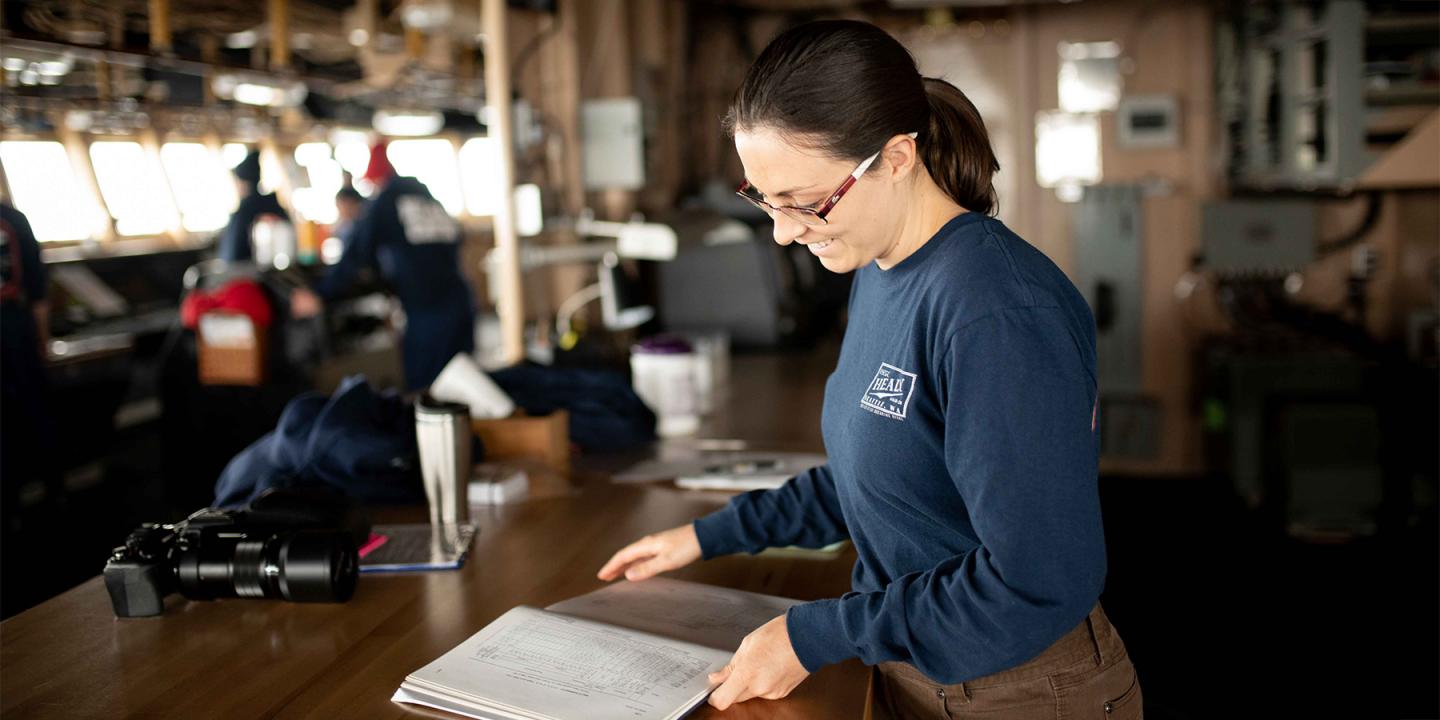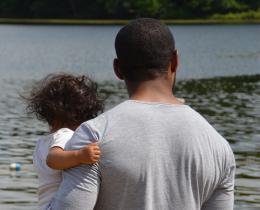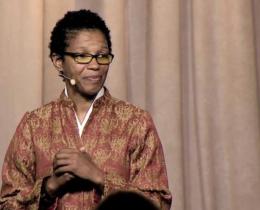When it comes to climate change, the Arctic is the canary in the coal mine.
“The Arctic," says Marisol Maddox, "is changing about three times faster than the global rate.”
Marisol, a graduate of the Environmental Literacy Immersion Program (ELIP) at Omega, serves as a senior Arctic analyst at the Polar Institute of the Woodrow Wilson International Center for Scholars in Washington, DC.
And what happens above the Arctic Circle has direct effects on what happens in the rest of the world. "It's all connected," Maddox says.
Global climate tipping points at risk of being triggered by Arctic change include:
- The Greenland ice sheet's stability
- The integrity of permafrost
- The strength of the Atlantic Meridian Overturning Circulation (AMOC)—an oceanic conveyor belt that contains the Gulf Stream.
As the cryosphere—the frozen places of the earth—degrades, freshwater from melting ice dilutes seawater. Changes in temperature and salinity can weaken the AMOC, which in turn affects weather elsewhere in the world.
"Recent research has also demonstrated a direct link between the Greenland ice sheet’s melt and a dramatic decrease in West African monsoon precipitation," she says, "as well as in sea-level rise for the east coast of the United States."
A National Security Threat
Marisol’s passion for active engagement on climate change led her to hone in on Arctic change as a place to leverage the national security interests of institutions like the Department of Defense to act on climate.
She says the time she spent in ELIP at Omega helped shaped her approach toward influencing policy, even in a highly partisan political environment. Marisol had studied environmental science as an undergrad and decided to pursue an International Security master’s program at George Mason University in order to learn the theory, doctrine, and language that guide the security community’s thinking and strategy development.
“I thought it would be amazing," she says, "if we had people who worked in the national security sphere who understood ecological design, systems thinking, and the interconnected nature of human and environmental health.”
Key to her ability to combine climate change and security for her graduate work was finding a partner that would support such an unusual combination of scholarship. That person was program director Ellen Laipson, a former intelligence community practitioner who understood the links between climate and security.
“After 9/11 there was a concerted focus on anti-terrorism," Marisol says "But we must not allow tunnel vision to keep us from recognizing the spectrum of factors that bear upon homeland and national security. The evidence increasingly speaks to the need to understand how actor-less threats such as climate change, biodiversity loss, and pandemics pose a profound risk to basic stability and security.”
Black Swans
It’s not easy being one of the few people bringing an ecological design perspective to the security field, but Marisol has made strides in communicating the risks.
“In the security sector, they want to know what’s coming their way,” she says. "If climate change isn’t accounted for in strategy and operational planning, the risk of black swan events—things you didn’t anticipate—is very high."
Studying permaculture, a key element of the ELIP program, gave Marisol an appreciation for systems thinking, which is critical to understanding the extensive nature of the threat posed by climate change. It’s the way climate change interacts with already existing tensions, or the way it impacts fragile populations, that makes it a threat multiplier. And when multiple stressors converge, conflict often erupts.
“Finding the language to convey the risk is just part of the reality of trying to work with different types of people, and the ELIP process was really helpful with that," she says. "Over the past several years, I have had to be artful in the way I’ve approached this work.”
“A lot of people think climate change is the problem, but ultimately that is not the case. Are the risks from climate change unprecedented? Absolutely. But if you think about why climate change is happening, it’s actually a perfectly normal response from Earth’s systems which have been disrupted by humans emitting massive amounts of greenhouse gasses into the atmosphere while simultaneously undermining ecological functionality."
The Catalyst
If we actually want to get the climate ‘problem’ right, Marisol says, we must address human behavior. In permaculture there is a saying that ‘the problem is the solution.’ While this problem is absolutely profound, one of the beautiful things about it is that it demands a change in the status quo, and could be the catalyst needed to re-examine societal structures, historical trauma, and human relationships.
Marisol also talks about the need for change not only from society at large through grassroots movements, but also from within powerful institutions such as the Department of Defense, Department of Homeland Security, and Congress.
“How amazing," she says, "would it be for more people from the permaculture community to work within these institutions to help them to better understand the scope of variables that bear upon their mission set? We need people who understand the inherent interconnections within systems at the highest possible levels. These people are at the headwaters. They impact everything downstream through policies that incentivize different behaviors and actions through funding and resources, so the leverage points are tremendous.”
Marisol is also a non-resident research fellow at the Center for Climate & Security, and is in the current cohort of Newport Arctic Scholars Initiative at the U.S. Naval War College. She recently became co-lead of the international climate working group of Foreign Policy for America’s NextGen Initiative.



